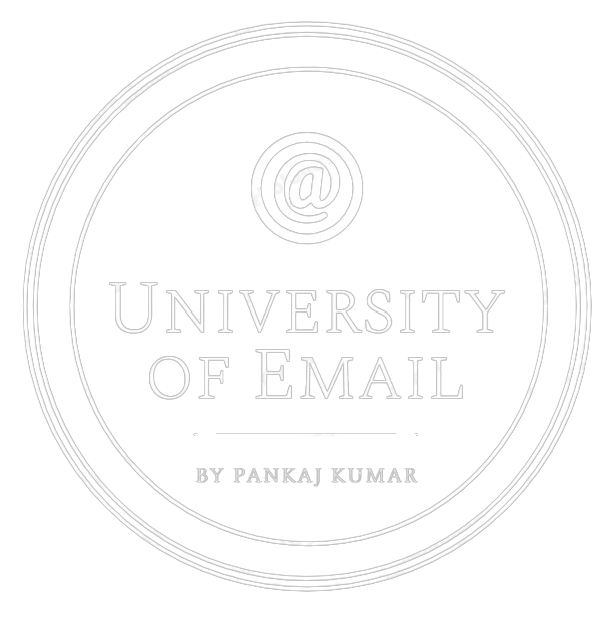AI is everywhere, so why not in email marketing. Leverage it’s potential as much you can. Artificial Intelligence, though a broad concept involving machine learning and data analytics, finds an impactful niche in the field of email marketing.
This is a space where AI has shown tremendous potential. It interpret and predict consumer behaviour. Leveraging these insights allows businesses to formulate hyper-personalized emails. It can craft messages that resonate with each recipient’s unique preferences. This, in turn, boosts customer engagement and drives up conversion rates – critical metrics in the success of any marketing campaign.
The reach of Artificial IntelligenceI in email marketing, however, extends far beyond personalization. AI is actively used in streamlining and optimizing other aspects of email marketing. Innovations in AI technology allow for the creation of software such as Phrasee or Persado, designed to leverage AI algorithms to enhance the effectiveness of emails.
They achieve this by generating persuasive and engaging email subject lines. Also, curating compelling content, and constructing convincing calls-to-action. Each of these factors is integral to enhancing open rates and click-through rates. Further improving the efficiency and success of email marketing campaigns.
How marketer can leverage AI in email marketing
- Use AI to Personalize Your Emails
Artificial Intelligence takes personalization to the next level. By analysing a customer’s past interactions, purchase history, and online behaviour. Artificial Intelligence can help you curate content that resonates with your audience. Software like Dynamic Yield or Optimizely can provide personalized product recommendations. Also, it can create a bespoke shopping experience that can significantly boost conversion rates.
- Leverage Predictive Analytics
- Artificial Intelligence enables you to harness the power of predictive analytics in your email marketing strategy. Tools such as Snov.io (I use it the most) or Mailchimp’s Send Time Optimization (STO) can analyse vast amounts of data to predict the best time to send emails, the type of content a user is most likely to engage with, and even the likelihood of a user unsubscribing.
- Implement Automated A/B Testing
While A/B testing is crucial for any successful email marketing campaign, it can often be time-consuming. Artificial Intelligence automates this process, testing multiple variables simultaneously (subject lines, email content, CTAs, sending time). It determine the best-performing version in real-time. Platforms like Blueshift or Marketo offer robust AI-driven A/B testing features.
- Utilize AI-Generated Content
AI can create email content that aligns with your brand’s voice and style. Tools like Jasper (formerly Jarvis) can analyse your previous emails and generate new content that is both engaging and consistent with your brand.
- Harness Sentiment Analysis
Sentiment analysis, a branch of Artificial Intelligence, can help you understand the emotional tone behind customer responses. By examining words and phrases in customer emails or feedback, AI can categorize sentiments as positive, negative, or neutral.
This insight is invaluable in tailoring email responses or creating future content that addresses any concerns or leverages positive perceptions. Software like MonkeyLearn or Brandwatch offers advanced sentiment analysis capabilities for businesses.
- Integrate AI Chatbots
Including Artificial Intelligence chatbots in your email marketing strategy can significantly improve customer engagement and facilitate instant communication. AI chatbots embedded within emails can answer customer queries, provide product suggestions, or direct the recipient to relevant resources, enhancing customer experience and potentially leading to higher conversion rates. Platforms such as Intercom or Drift provide effective Artificial Intelligence chatbot options for email marketing.
Building an AI-Driven Email Marketing Strategy

Successfully integrating Artificial Intelligence into your email marketing strategy requires a systematic approach. Here are some additional tips for effectively using Artificial Intelligence in your email campaigns:
- Start with Your Goals
Before implementing AI, be clear about what you want to achieve. Is it higher open rates, increased click-through rates, or improved conversions? Having a clear goal will guide your AI strategy.
- Choose the Right Tools
There’s a multitude of AI tools available for email marketing. Pick one that aligns with your needs, budget, and technical capacity. Remember, the most expensive tool isn’t necessarily the best one for your business.
- Optimize and Test
As with any marketing strategy, testing and optimization are key. Use Artificial Intelligence to run A/B tests, analyze the results, and make necessary adjustments to optimize performance.
Keep Your Brand Voice Consistent: When using Artificial Intelligence to generate content, ensure it captures your brand voice. Consistency is crucial in building brand identity and loyalty.
- Leverage AI for Data Analysis
Data is the driving force behind any successful Artificial Intelligence strategy. Utilize AI tools to help you collect, process, and analyse data about your customers. The insights gained can then be used to create more effective and personalized email campaigns. Tools like HubSpot or Salesforce offer AI features that can help with data management and analysis.
- Stay Informed About AI Developments
AI is a rapidly evolving field. To maximize the benefits of AI in your email marketing strategy, it’s essential to keep up-to-date with the latest advancements, trends, and best practices in Artificial Intelligence technology.
Participate in webinars, attend conferences, read relevant industry publications, and consider joining online communities and forums dedicated to Artificial Intelligence in marketing. This will enable you to continuously improve your AI strategy and stay ahead of the competition.
Final word
Artificial Intelligence has become an invaluable tool in the world of email marketing. Its ability to hyper-personalize content and automate processes like A/B testing is truly transformative. By analysing customer behaviours, AI helps businesses deliver targeted, meaningful messages, improving customer engagement.
Suggested post for you: What is CDP and it’s checklist?

